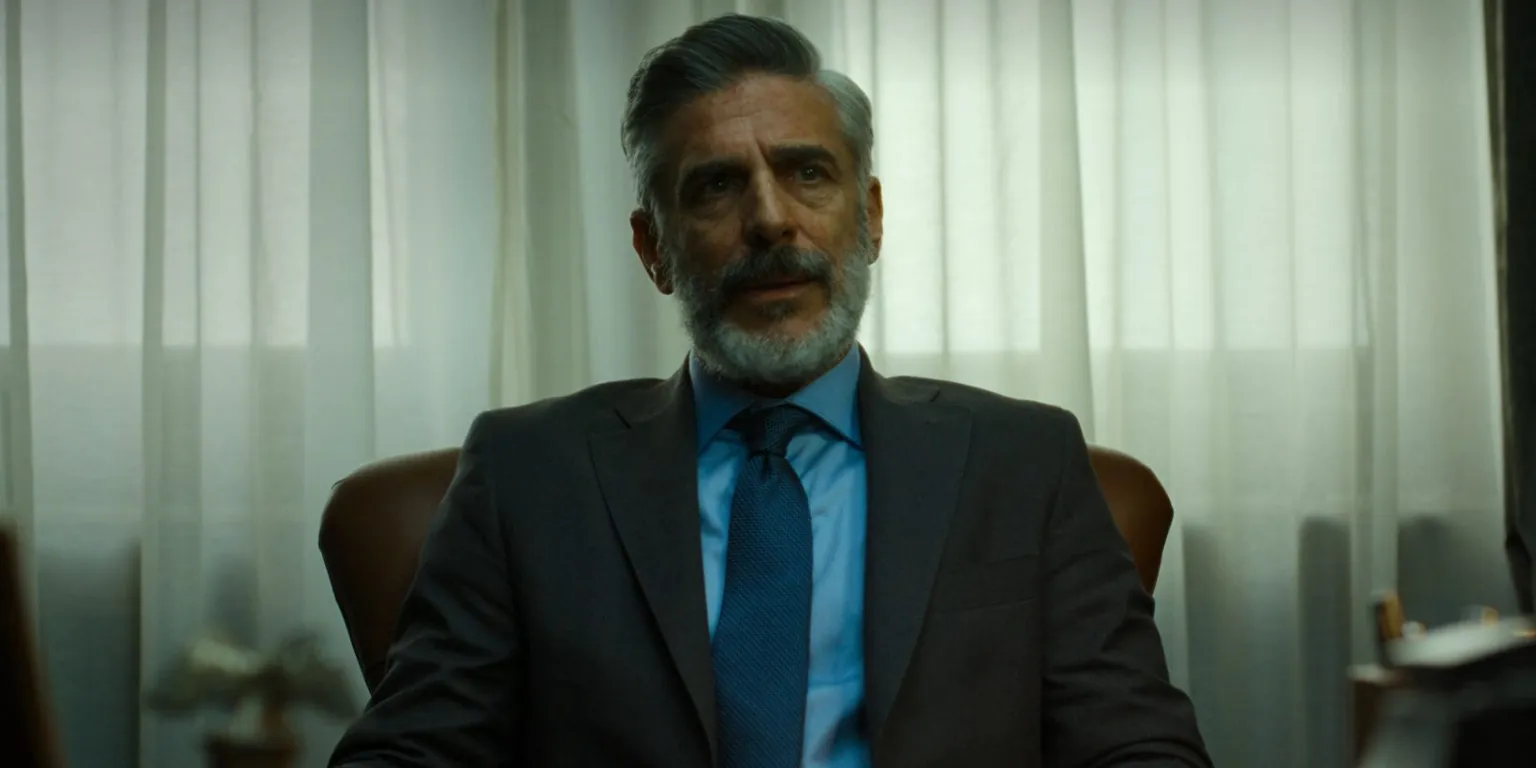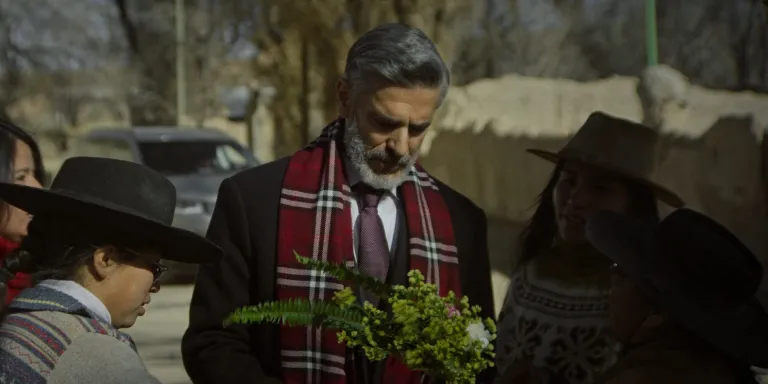The Argentine mini-series Maledictions (Las maldiciones) on Netflix has quickly gained popularity because it seamlessly blends political drama, moral dilemmas and psychological suspense in a way that keeps viewers on the edge of their seats.
Daniel Burman created the three-part thriller, which takes viewers into the tense world of Governor Fernando Rovira, a politician who must balance keeping his family safe with achieving his goals. Due to its effective portrayal of corruption, secrecy, and power struggles, many fans have wondered whether Maledictions is based on real events or is just a work of fiction.
To clarify the matter, let’s examine the origins of the show, its connection to real-life politics, and how it blends fact and fiction. NetflixAddicts wrote an article about the story behind the mini-series and the real-life events that may have influenced it.
The Storyline in Focus
The main plot of Maledictions revolves around the tense relationship between Governor Fernando Rovira, played by Leonardo Sbaraglia, and his former loyal partner, Román Sabaté, played by Gustavo Bassani. Román kidnaps Fernando’s daughter, Zoe, while the Governor is in the middle of heated debates about the passage of a controversial Water Bill. This shockingly changes the story.
Fernando’s political career and goals are suddenly at risk. He has to choose between the safety of his daughter and the future of his legacy. On the other hand, Román is not only planning the kidnapping, but he is also trying to make sure the Water Bill passes, which makes things even more complicated for him. This constant push and pull makes it dangerous for politics, morality, and family to clash.
Is Maledictions Based on a True Story?
Maledictions is not true; it is a fictional story based on Claudia Piñeiro’s well-known book Las maldiciones. Piñeiro is known for writing stories that reveal the complexities of Argentine politics and society. He is the basis for the show. Fernando Rovira, Román Sabaté, and Zoe are fictional characters, but the problems they face are remarkably similar to real-life political issues in Argentina.
The teleplay, written by Daniel Burman along with Natacha Caravia, Martín Hodara, Andrés Gelós, and Pablo Gelós, builds on the novel’s structure but adapts it to suit the screen. Burman himself noted in an interview that Claudia Piñeiro’s morally conflicted characters inspired him deeply. He explained that her novel dictated not just the story but also the way the show needed to be told—making a mini-series format the natural choice, rather than a film.
Staying Faithful to Claudia Piñeiro’s Vision
The mini-series stays true to the spirit of Piñeiro’s original book, especially when it shows how politics, personal ambition, and betrayal are all connected. The book looked at how the passing of a Water Bill affected different politicians, advisers, and powerful people who had a stake in the issue. The series continues this thread while refining the movie parts to highlight how political games harm individuals.
Gustavo Bassani, who plays Román, said that his character is someone who initially wants to make a difference but then realizes how hard it is to resist power. He said that Román’s journey was like “swimming against the current,” where fighting back only makes things worse and death is the only option if you don’t choose to survive. Piñeiro herself talked about this theme when she said that the power dynamic between Fernando and Román changed from boss and employee to master and apprentice, and finally to political leader and assistant.
This change illustrates how politics frequently involves relationships founded on sacrifice, loyalty, and power struggles. The series pays tribute to Piñeiro’s work while also making the story more visually interesting and relevant to today.

Lithium Politics at the Core of the Series
One of the most interesting aspects of Maledictions is how it incorporates Argentina’s lithium industry into the plot. The Water Bill is what Fernando Rovira is against, and that’s why he is engaging in political activities. He thinks that allowing companies like the made-up Mapple Corporation to mine lithium without limits will bring jobs, economic growth, and foreign investment to the area.
This theme is not a coincidence. Argentina holds approximately 21% of the world’s lithium reserves in its salt lakes, making it a significant player in global energy politics. The country has a lot of resources, but it only makes about 6% of the world’s lithium. Argentina has struggled to grow due to a lack of technology and infrastructure. To attract foreign investors, especially Chinese companies, the country has offered incentives such as tax breaks.
The series illustrates how Fernando aligns with corporate interests and overlooks the environmental consequences in pursuit of profit, reflecting this geopolitical reality. It highlights the conflict between development and sustainability, a significant aspect of Argentina’s resource politics for a long time.
Real-World Parallels That Strengthen the Fiction
Maledictions is a fictional story, yet it is extremely close to what really happens when lithium is mined in Argentina. For instance, a Mongabay post from 2025 talks about the battle over lithium developments in places like Catamarca’s Salar del Hombre Muerto. The International Finance Corporation (IFC) lent an Australian mining business $180 million, but the project earned a lot of bad attention for not working with Indigenous communities enough and taking up water resources.
The series talks about these real-life problems. The story talks about how the environment is being hurt, how Indigenous rights are being ignored and how businesses care more about making money than helping people. The Water Bill in Maledictions is a symbol of these larger problems. It shows that laws can either protect natural resources or make it easier for people to use them without permission.
By incorporating these elements into its narrative, the show strikes a rare balance: it tells a thrilling story while also addressing important social and political issues.
Themes That Resonate Beyond Argentina
The best thing about Maledictions is how universal its themes are. Corruption, power struggles, loyalty to family, and moral compromise are not just problems in Argentina; they are global issues. People can see similarities in many countries where political choices about natural resources affect people’s lives, the economy, and the environment.
The mini-series also talks about what it costs to be ambitious. People don’t just think Fernando is a bad guy; he thinks that investing in businesses can help his people. But his willingness to put the safety of the environment and even his daughter’s safety at risk shows how politics often requires people to make compromises. Román, on the other hand, represents the opposite struggle: a man who tries to stand up for his beliefs but is ultimately crushed by a system based on power dynamics.
If you enjoy intelligent thrillers that blend politics with personal drama, you must watch Maledictions on Netflix.



